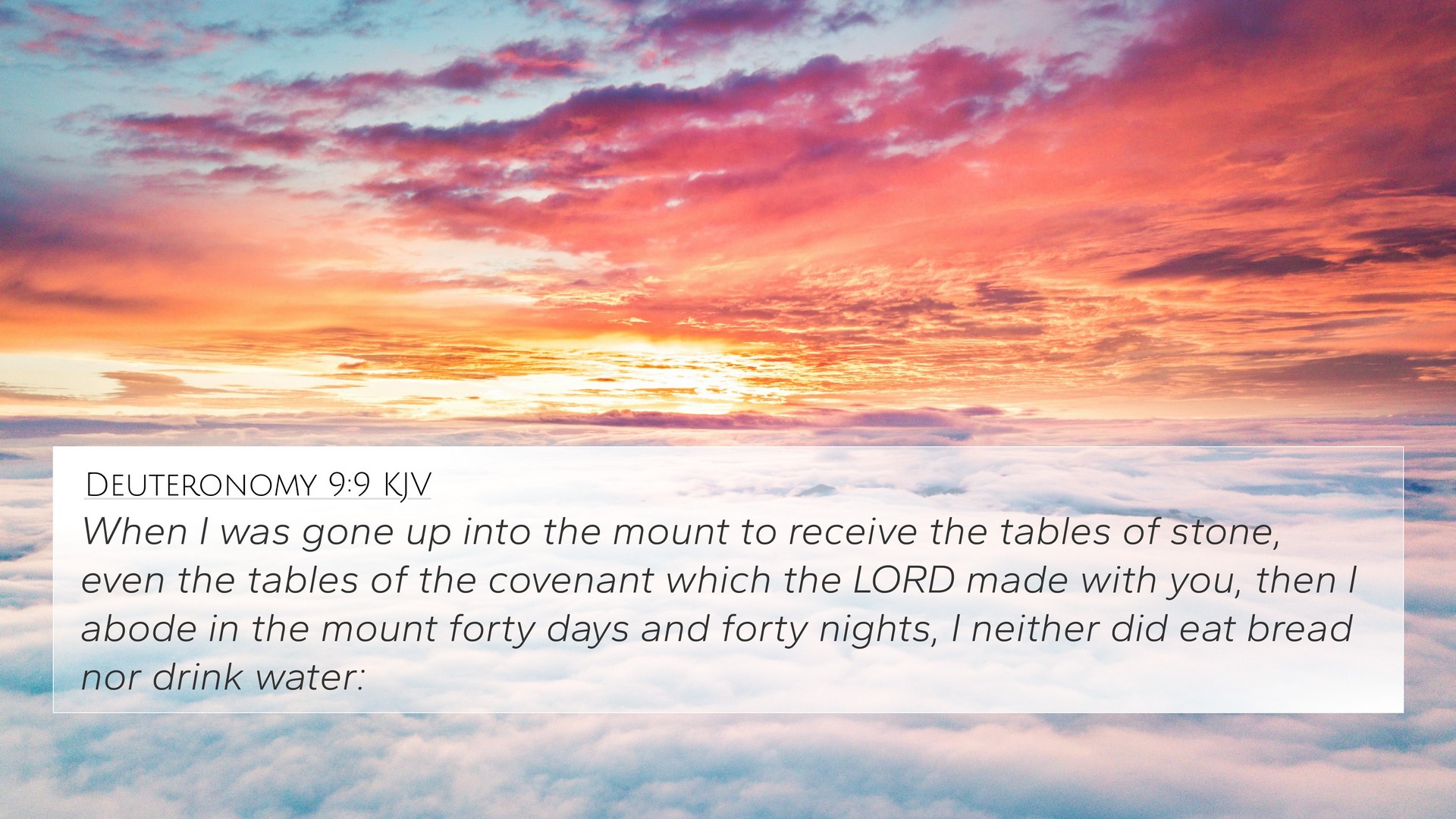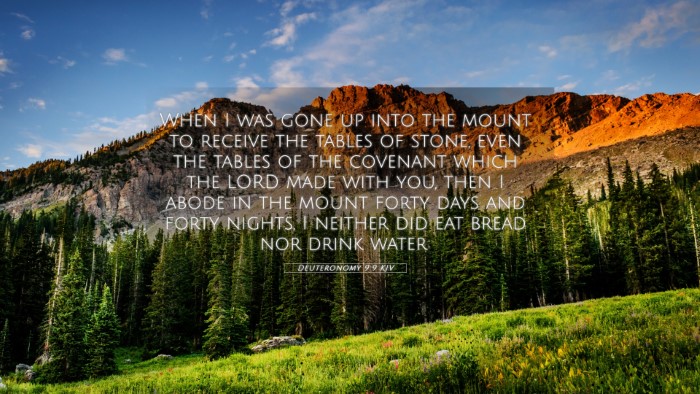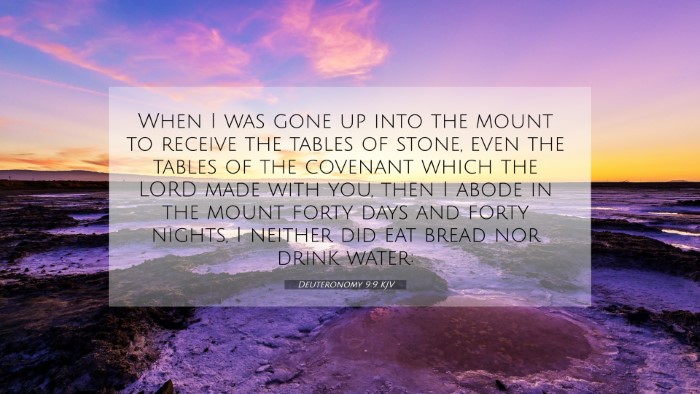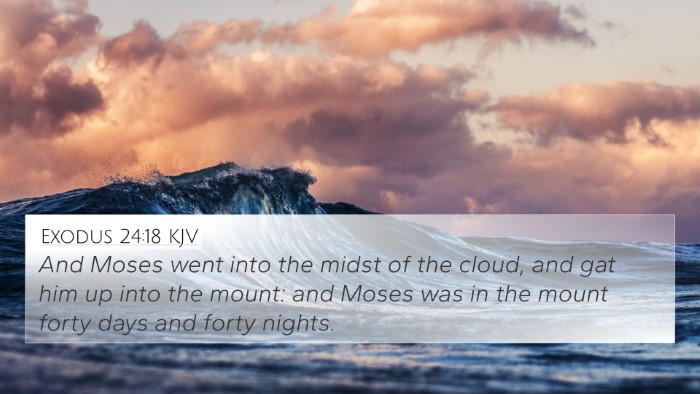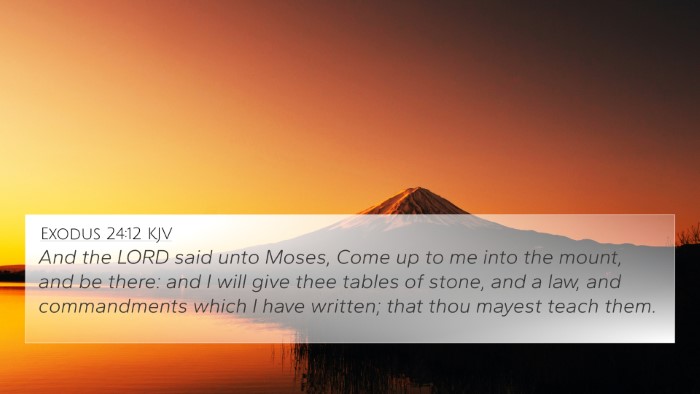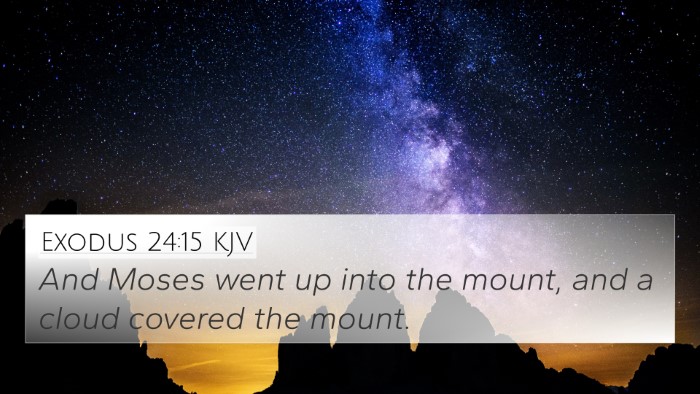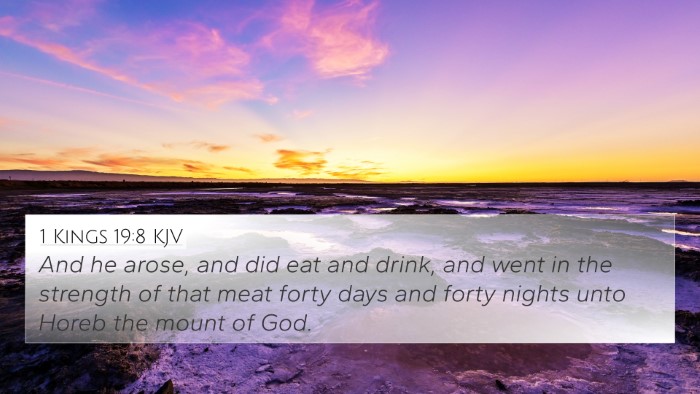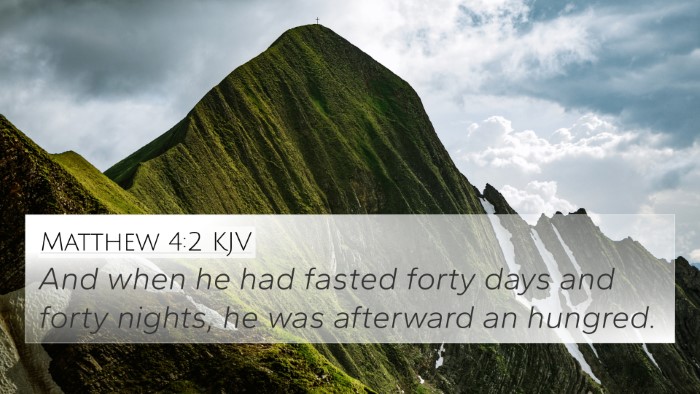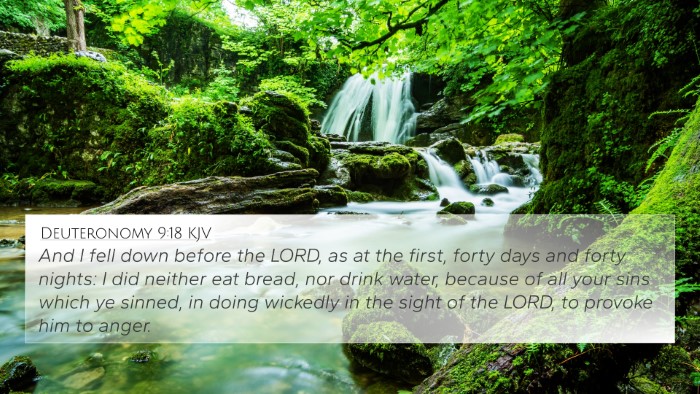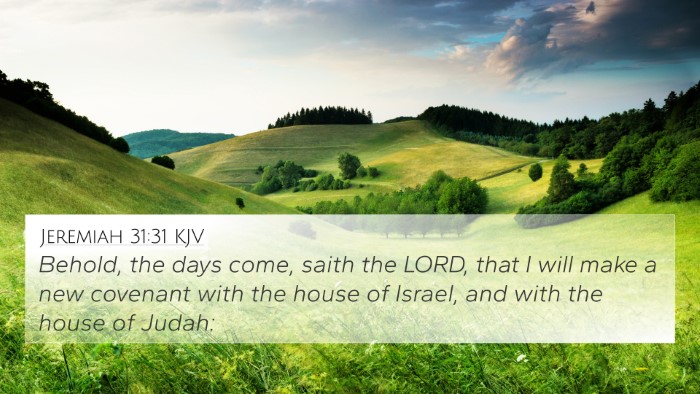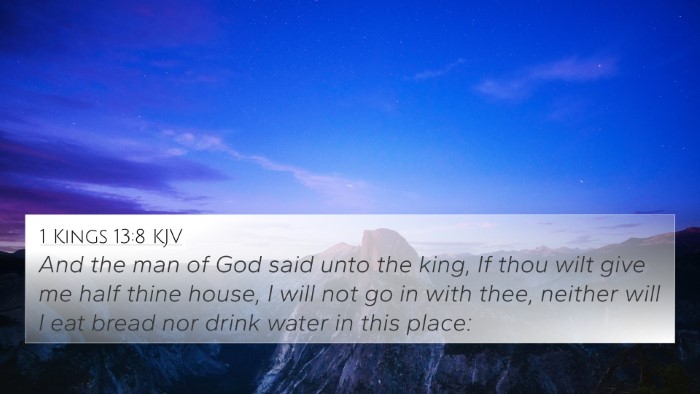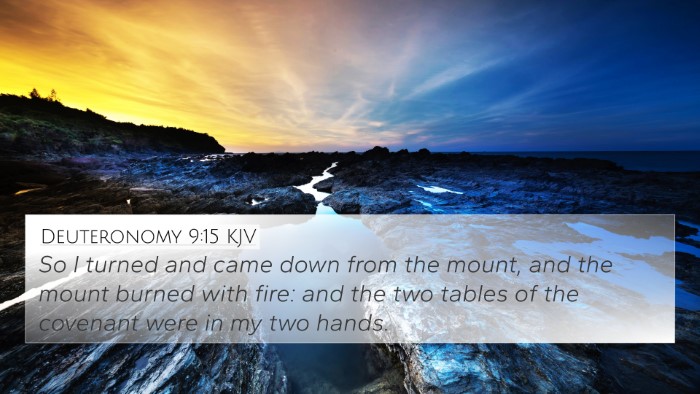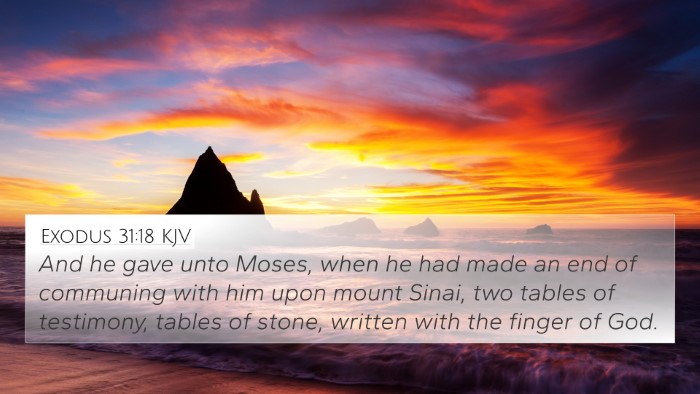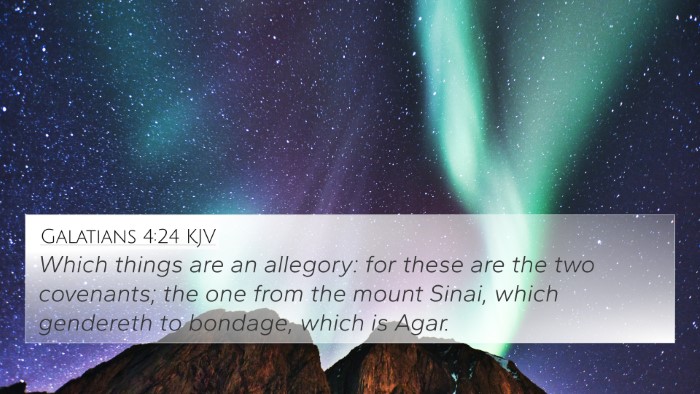Understanding Deuteronomy 9:9
Deuteronomy 9:9: “When I went up into the mount to receive the tables of stone, even the tables of the covenant which the LORD made with you, then I abode in the mount forty days and forty nights; I neither did eat bread nor drink water.”
Meaning and Context
The verse from Deuteronomy is drawn from a significant event in the history of Israel, highlighting Moses' communion with God on Mount Sinai. During this time, Moses received the Ten Commandments, which would guide the Israelites in their covenantal relationship with God.
Moses' Fasting and Divine Encounter
This passage illustrates both the severity and the sacredness of the occasion:
- Forty Days and Nights: The period of fasting signifies deep spiritual preparation and dedication. This mirrors the biblical symbolism of forty, often associated with testing, trial, and divine revelation.
- Absence of Food and Water: Moses' abstention from food and drink underscores his complete reliance on God during this critical moment, reflecting his humility and commitment.
Commentary Insights
Various public domain commentaries provide a depth of understanding regarding Deuteronomy 9:9:
Matthew Henry Commentary
Henry emphasizes that Moses' actions demonstrate his devotion and self-denial for the sake of fulfilling God's command and leading his people effectively. The act of receiving the covenant in isolation lends itself to the importance of divine instruction in solitude.
Albert Barnes Commentary
Barnes draws attention to the significance of “tables of stone,” indicating the permanence of the laws that God delivered. He connects this moment to the broader narrative of Israel’s journey and their need for guidance as they prepared to enter the Promised Land.
Adam Clarke Commentary
Clarke elaborates on the spiritual challenge of the experience. He notes how being in the presence of God can lead to profound revelations. His commentary also discusses the implications of the Ten Commandments as a moral framework for governance and social order.
Connections Between Bible Verses
Deuteronomy 9:9 serves as a nexus point for several other biblical texts that illustrate the weight of the covenant and the nature of divine interaction:
- Exodus 24:18: Reflects Moses’ stay on the mountain and the heavenly encounter essential for covenantal law.
- Exodus 34:28: Confirms the duration of Moses' fast while receiving the commandments on tablets.
- Matthew 4:2: Jesus’ forty days of fasting in the wilderness resonate with Moses’ experience of spiritual preparation.
- 1 Kings 19:8: Elijah’s journey for forty days signifies divine provision and guidance, linking to Moses’ narrative.
- Acts 7:38: Steven references the assembly at Sinai, showing the continuation of God’s covenant theme.
- Hebrews 9:4: Discusses the tablets of the covenant, establishing a connection to the New Covenant through Christ.
- Romans 10:4: Reflects on the completion of the law in Christ, providing thematic continuity across testaments.
Bible Verse Cross-Referencing Tools
To analyze these connections, various tools for Bible cross-referencing can be utilized:
- Bible Concordance: A helpful resource for locating words and themes throughout Scripture.
- Bible Cross-Reference Guide: Guides that offer insights into correlated verses across different books.
- Cross-Reference Bible Study: A method that encourages deeper understanding through related scriptures.
Conclusion
Deuteronomy 9:9 is a pivotal verse that encapsulates the essence of God's covenant and Moses' leadership. By using bible verse cross-references effectively, readers can explore the rich thematic connections that bind the Old and New Testaments, allowing for an enriched understanding of scriptural narratives.
